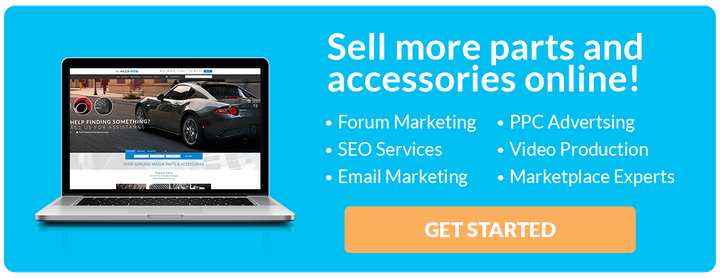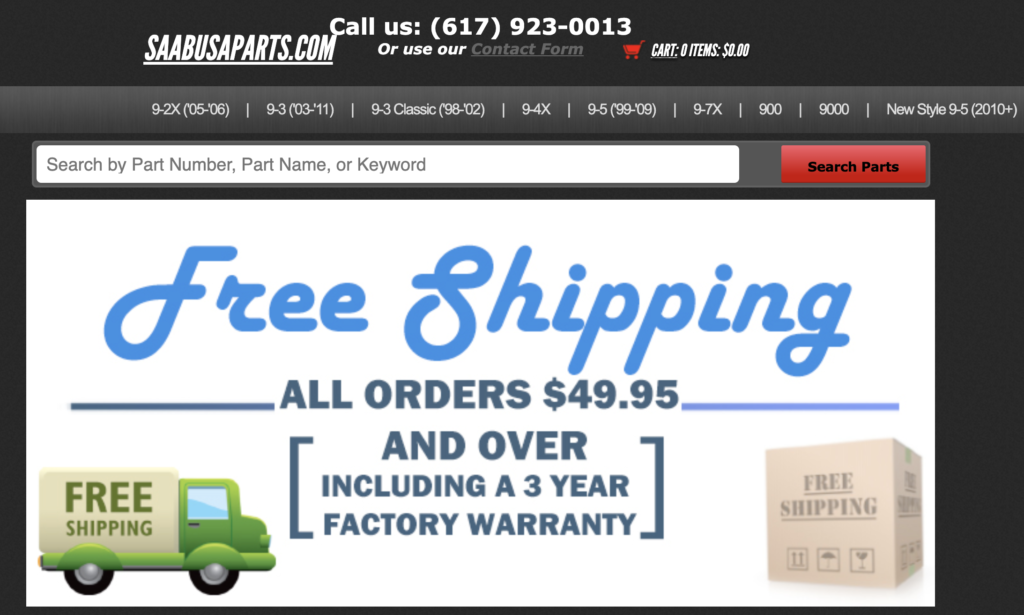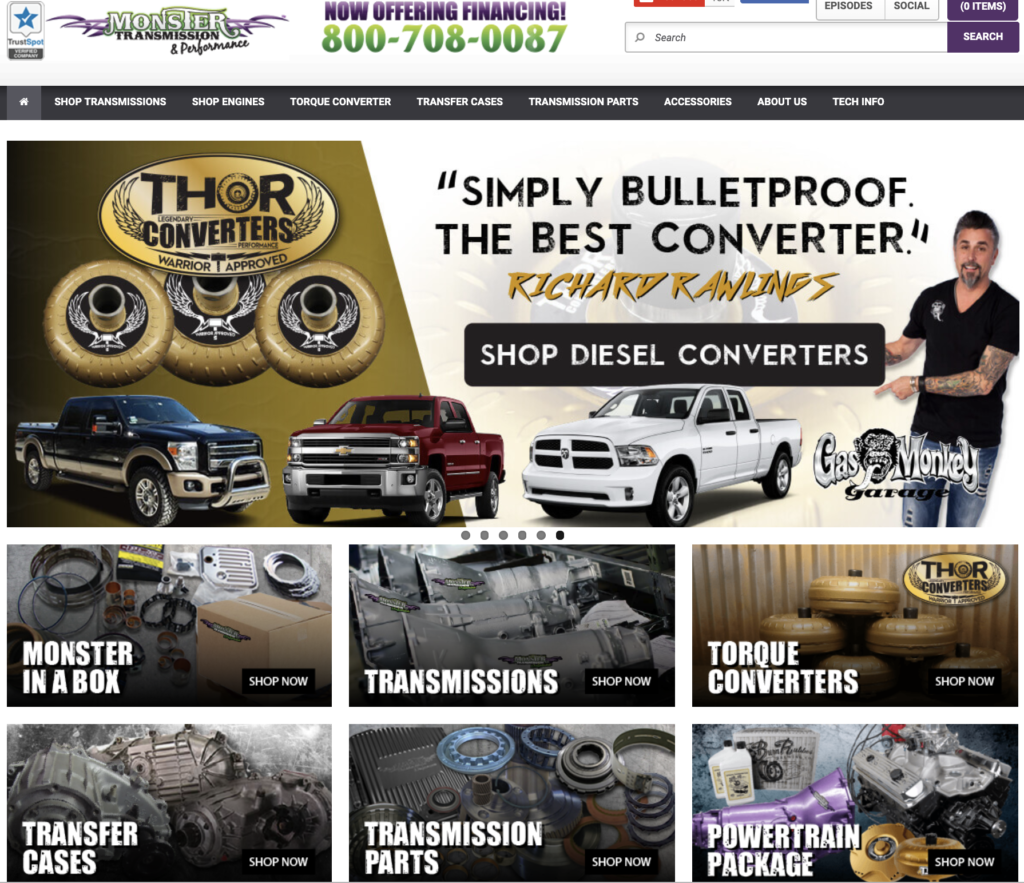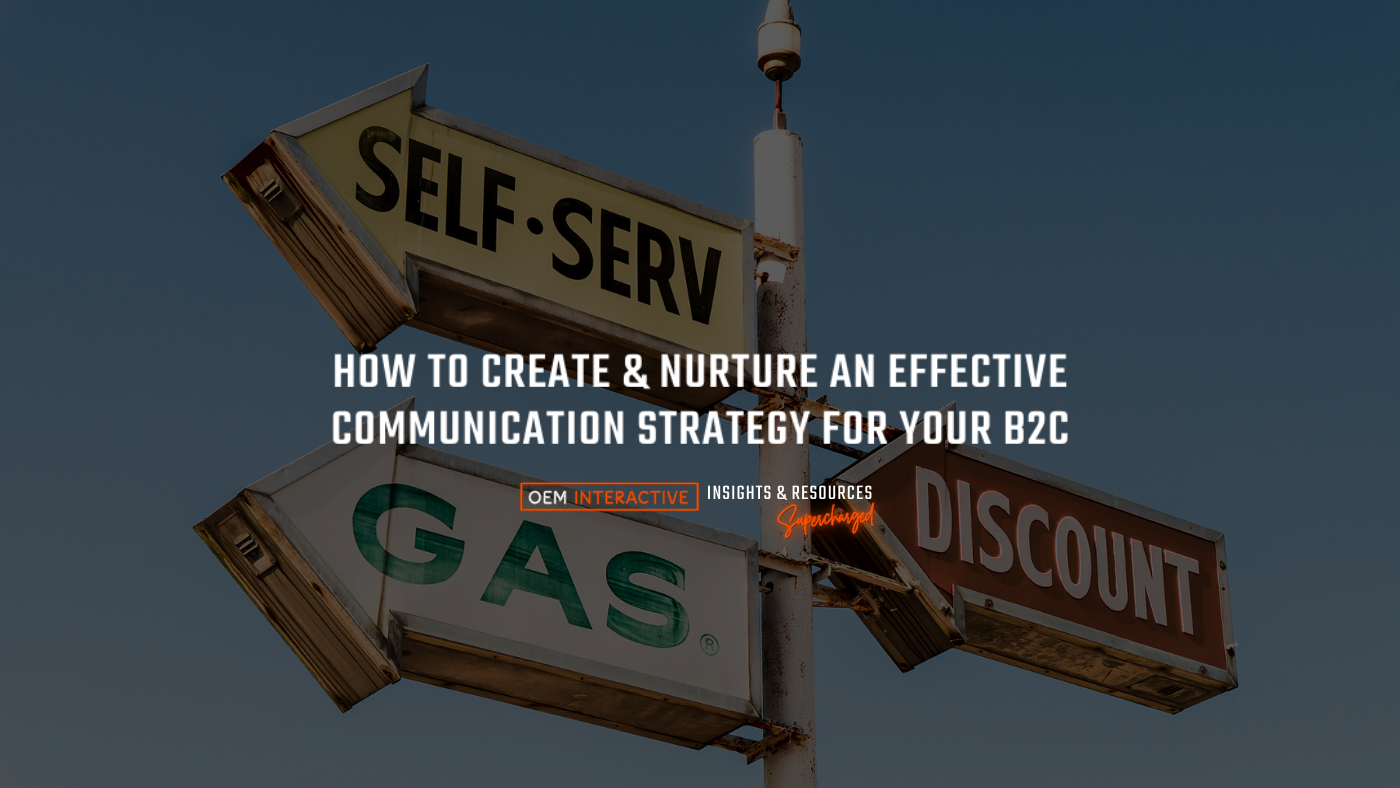If you’ve already got your own brick and mortar shop but are wondering how to start an online auto parts business, this comprehensive list of eCommerce platforms is just the thing you need to get you started. In this post we’ll provide you with the following:
- A run-down of the major eCommerce platforms that come preloaded with OEM parts compatibility
- A list of the most popular aftermarket parts and accessories platforms
- Provide you with a list of points to consider when choosing an eCommerce platform
So, whether you’ve been actively searching for an auto parts eCommerce website builder to complement your existing eBay or Amazon marketplace sales or are a complete beginner, read on to find out what shopping carts and site builders are right for you.
OEM and Genuine Parts eCommerce Website Platforms
The following platforms have been designed especially for selling genuine and OEM replacement parts. In other words, they come either with all of the compatibility data preloaded or the option to add it in for an additional cost (usually on a per make basis).
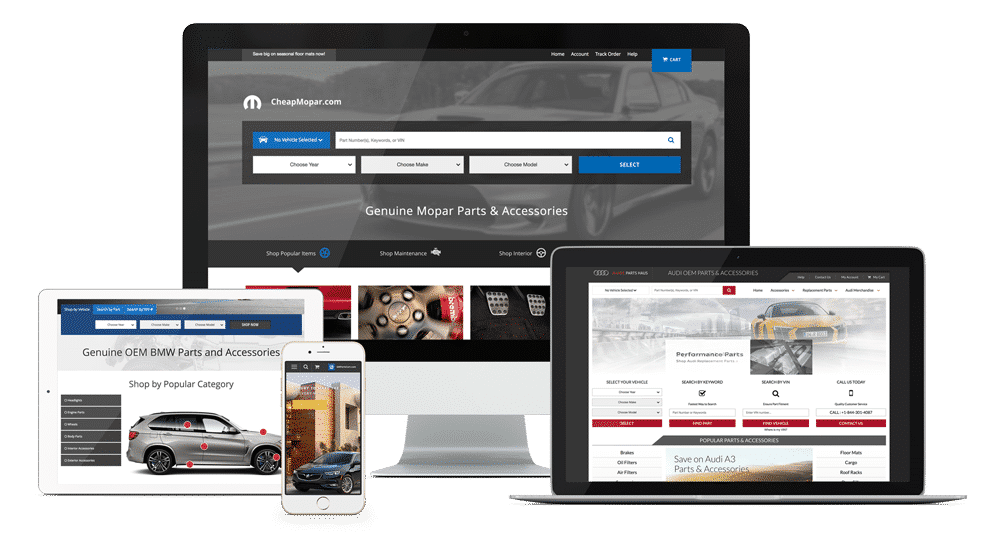
RevolutionParts: Perhaps the most popular platform out there, and one we have considerable experience working with. Your basic subscription includes one OEM catalog with the option to add in more at an extra cost. In addition to a plug-and-play eCommerce site, RevolutionParts also allows you to upload your auto parts listings directly to eBay and Amazon (Read: Ultimate marketers guide to advertising car parts on Amazon) and manage all of your orders from one convenient dashboard.
What makes RevolutionParts particularly powerful is the fact that they are an all-in-one solution. Not only do they provide the cart software and hosting but they also deal with account set-up and reporting and can even create abandoned cart email campaigns right on the platform. Features included in Revolution Parts base plan at $525/month:
- Included OEM CatalogChannels (All)
- 5000 Custom Products
- Fraud Screening
- Unlimited Support
- Page Scripts
- Custom Email Notifications
- Professionally Designed Web Store
- Easy-To-Use Shipping Tools
- Unlimited User Accounts
- Warehouse per Catalog
- Reporting
- Order Routing
- Unlimited Wholesale Customer Groups
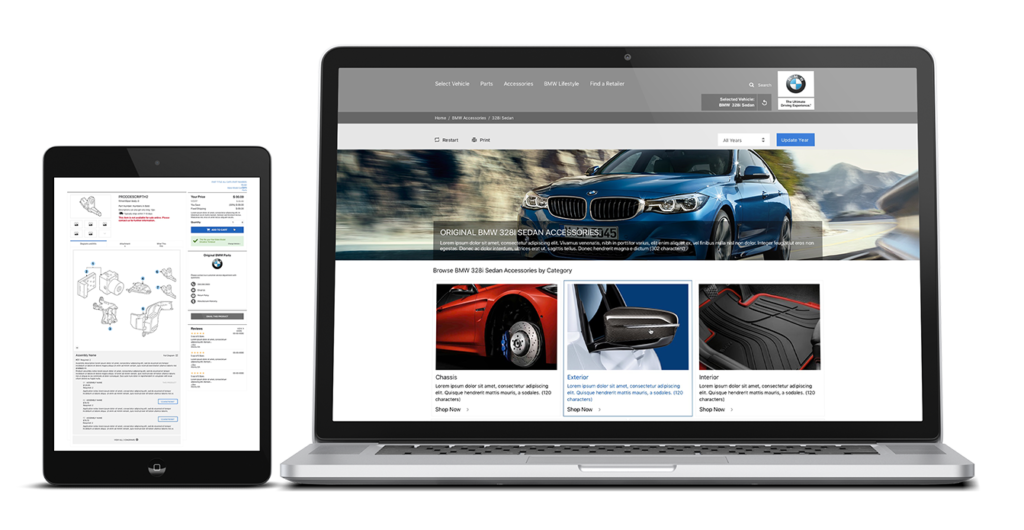
SimplePart: With 11 automotive brands to choose from, there are a lot of dealerships and auto parts shops who would be glad to get on board with this parts & accessories website. Unfortunately, they don’t come with parts data for Ford or GM vehicles out of the box which makes their website builder a harder sell for US-based sellers.
Other benefits of working with SimplePart include:
- Custom-tailored plans for your business
- Dealer success coaches
- Easy-to-understand analytics
- Wholesale ordering capabilities for larger auto parts orders
- 24/7 US-Based Support
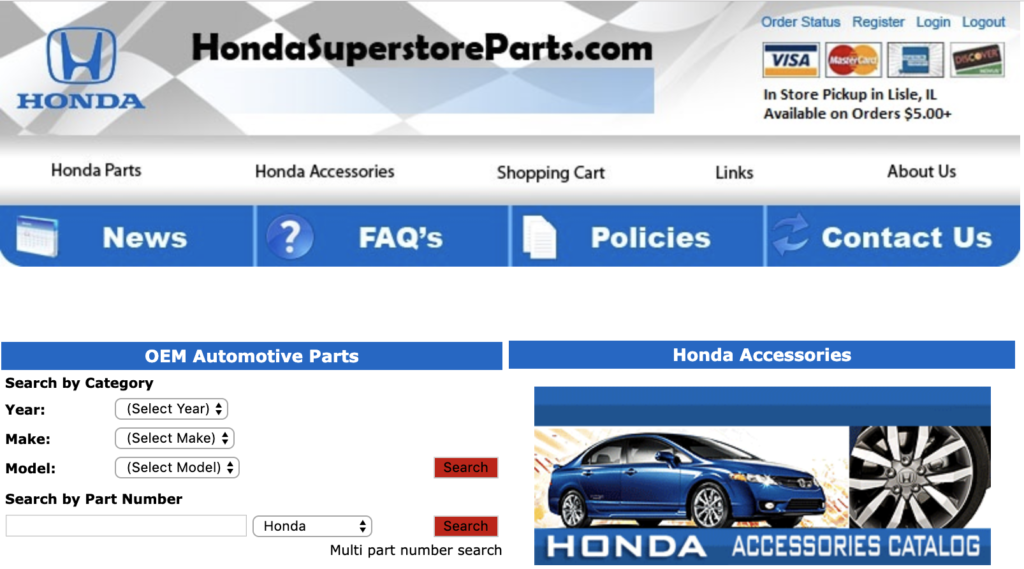
TradeMotion: Offers both an eCommerce platform and listing software that integrates Parts.com data.
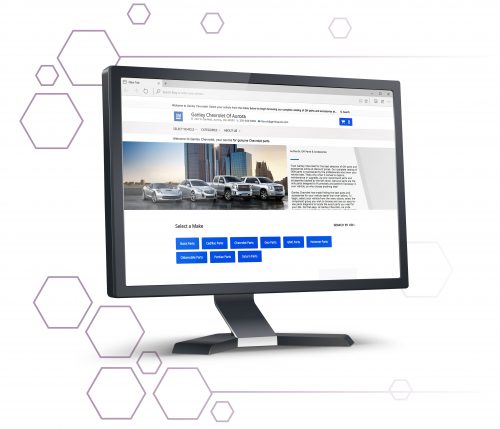
OE Connection: Whether you’re a collision specialist or dealer, there’s a customized eCommerce solution for you on this platform. Their dynamic websites are optimized for mobile sales and they also provide keyword research and on-page SEO services.
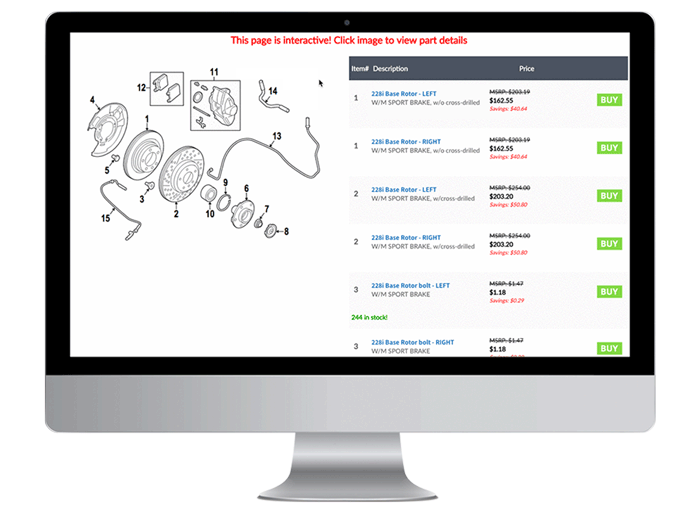
Altos Digital: A complete digital solutions company that helps you sell your catalog on Shopify, Magento, Volusion and WooCommerce. They engineer and architect catalog data for a competitive advantage online. Altos Digital offers:
- OEM catalog; interactive diagrams & parts lists.
- Shopper friendly front end with Year-Make-Model navigation and part number search.
- Easy to use back end: Integrated orders, payments, shipping, inventory, fraud detection, more.
Tradesoft: Designed primarily for European vehicles but also offers USDM fitment. Ideal for luxury dealerships and body shops.
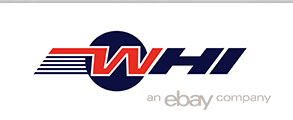
WHI Nexpart: According to their site, Nexpart is the number one eCommerce solution available to part sellers today. Nexpart allows you to sell on the web quickly and securely in real time, 24 hours a day from your own customized website.
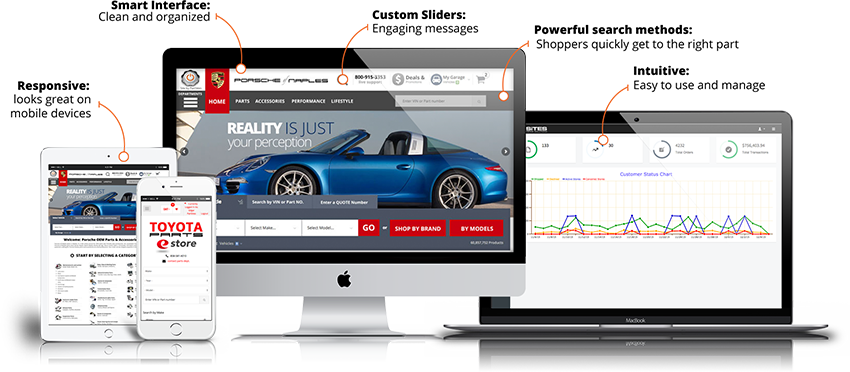
PartSites: Brought to you by the same company who created Parts.com, their platform is mobile friendly and optimized for Google. Some of their other key features include:
- No Contracts
- Unlimited support & training
- No Transaction fees unlike Revolution Parts
- No Setup fees. All design is concierge.
- Security: Free SSL, PCI 3.0 compliant, Tokenized Gateways, MaxMind fraud included
Aftermarket Parts (Direct to Consumer) Shopping Carts
The companies listed above provide platforms primarily designed to sell OEM parts. The companies below specialize in aftermarket accessories directly to the consumer (B2C):
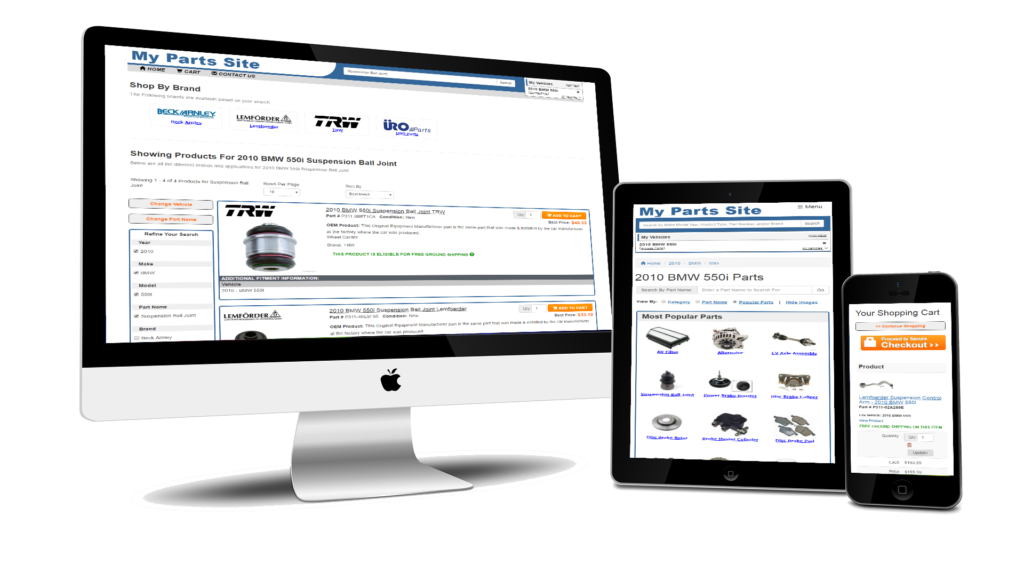
Parts Square: Custom made eCommerce technology available with year/make/model, guided, and full text search bundled with their Unified Catalog™ of parts and accessories. Parts Square offers a complete catalog and ordering system with fulfillment services that go along with their mobile and SEO friendly websites. This allows customers to order and have parts shipped immediately to them from their network of suppliers in the US and around the world. If you have your own products you can also upload your data, take the order, and ship it out.
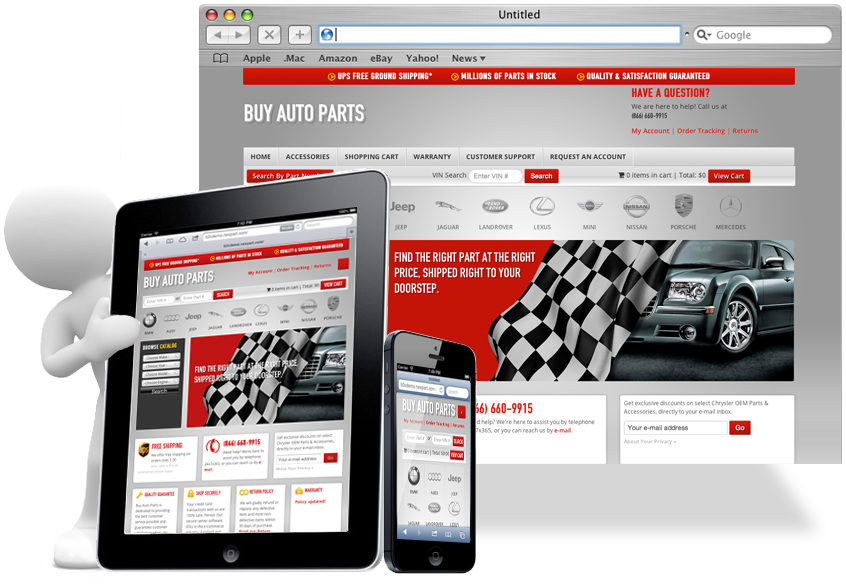
Sophio: This platform markets itself primarily as an omni-channel solution for auto parts and services. Key selling points include:
- Pro plan is $300 / month
- Customizable Web Store
- Integrated with eBay/Amazon
- Unlimited Products
- No Transaction Fee’s
- Hosted or Self-Hosted
- Unlimited Support
AutoSoEZ: A product of eCommerce that offers fulfillment and ACES/PIES features.
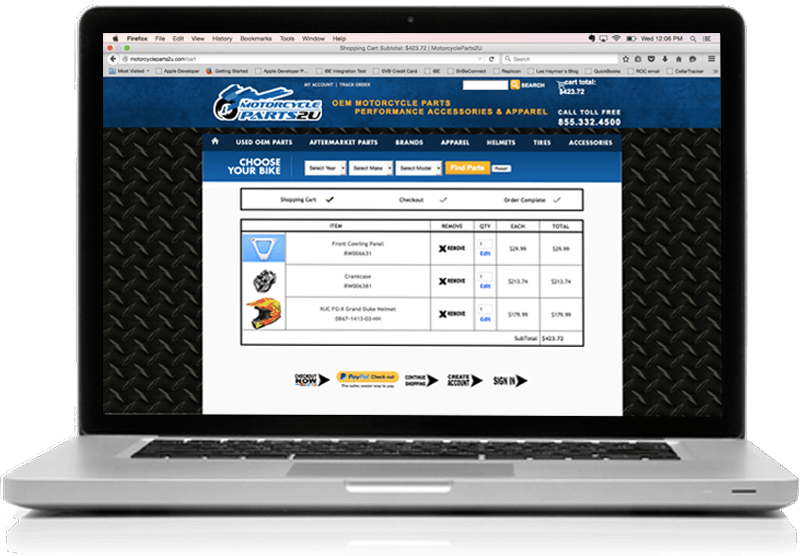
SureDone Storefront: Gives you the opportunity to migrate to a SureDone hosted website. Choose from a variety of fully customizable templates, or install your own. Integrates with their own parts compatibility database.
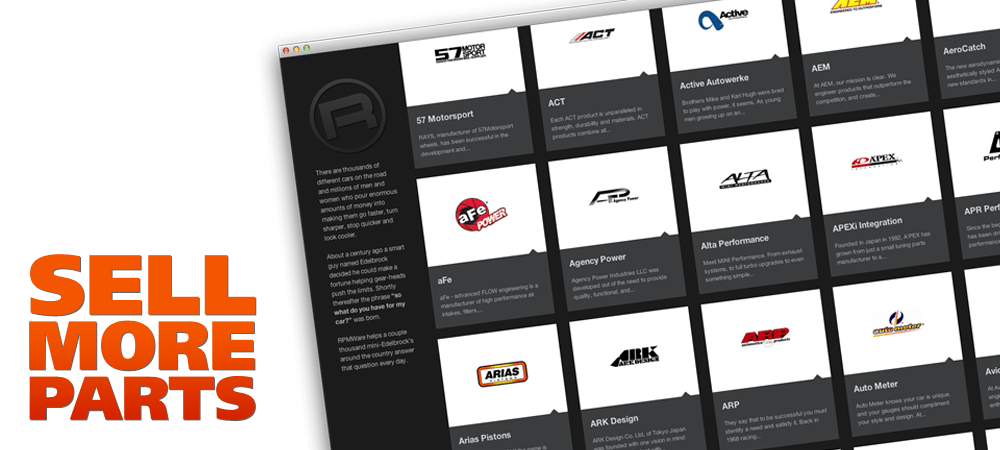
RPMWare: Whether you’re a shop or a distributor they provide you with data directly from manufacturers and ACES/PIES.
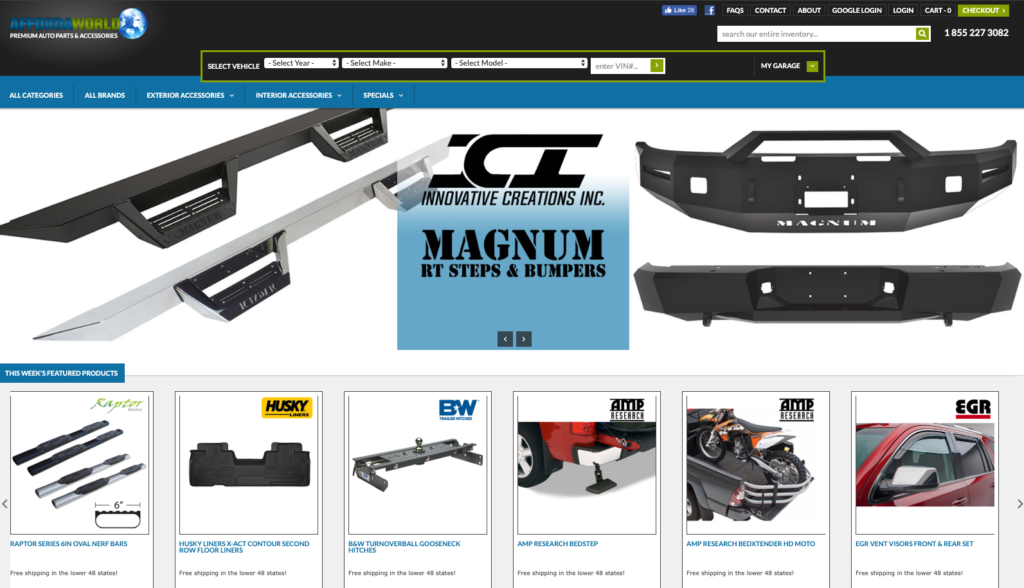
Auto Parts Shopping Cart: This is literally a cart dedicated to aftermarket parts. Their MAKE/MODEL/YEAR platform, has been developed as the ultimate eCommerce solution for the automotive industry.
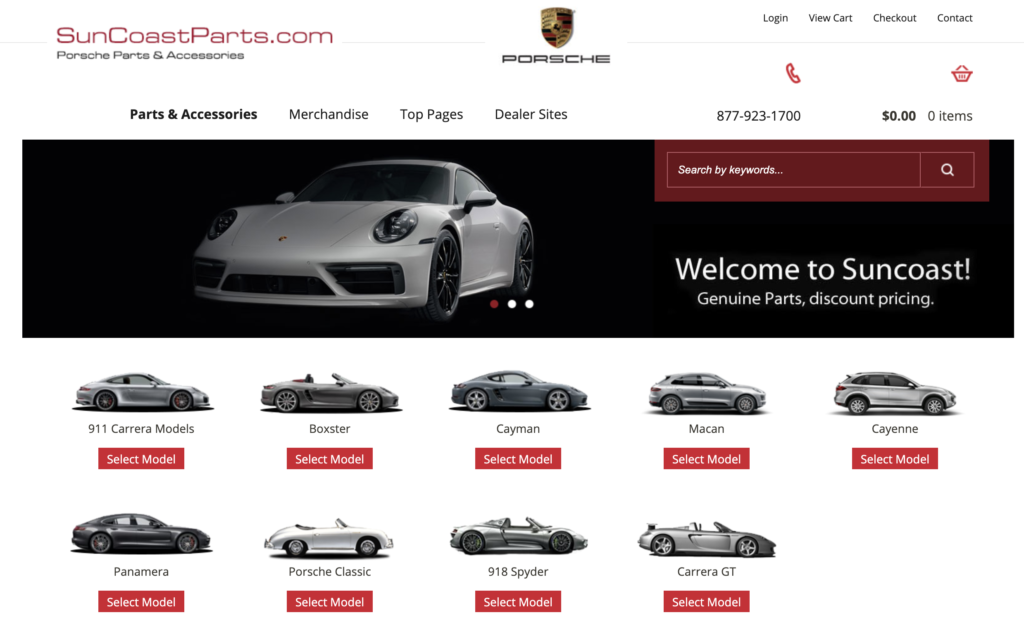
Miva: Although not specifically tailored to automotive parts, it is an open-source platform with lots of potential.
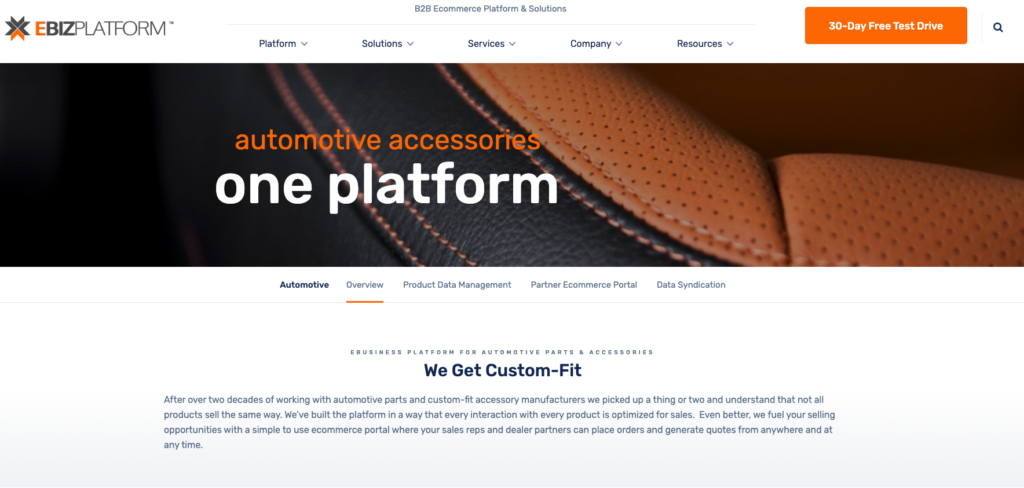
EBIZPLATFORM: A data management platform that offers eCommerce capability. Designed primarily for manufacturers and distributors so it is primarily B2B in nature.
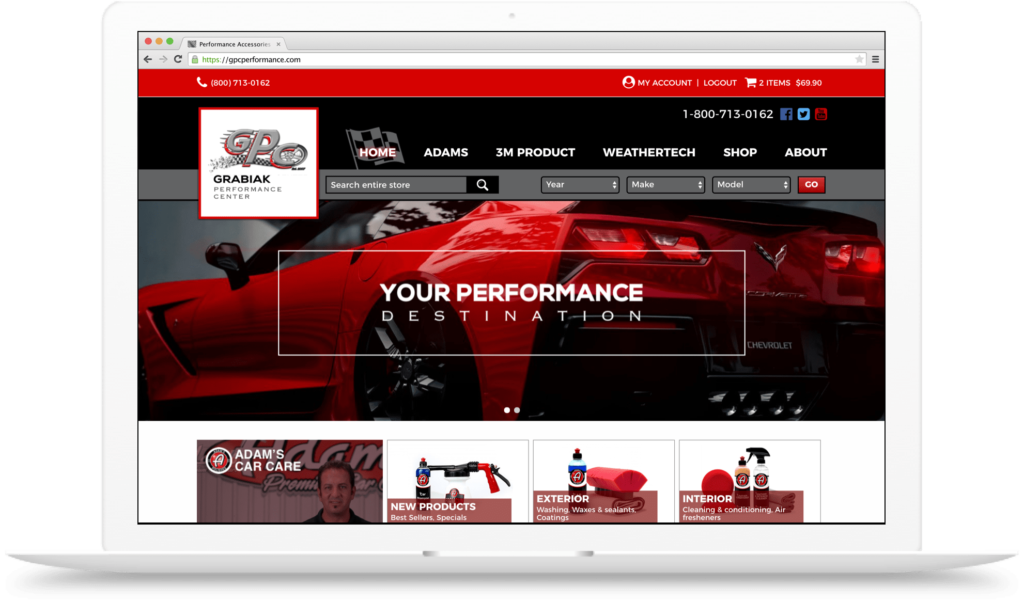
Complete Web Solutions: This is an excellent and affordable hosted solution with automatically updated data for over a hundred brands.
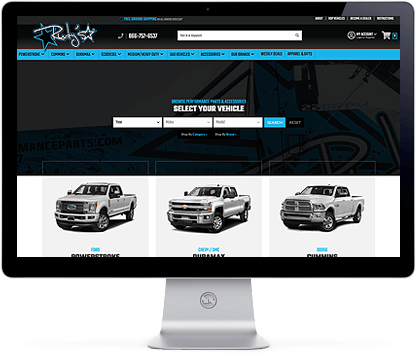
Web Shop Manager: Replete with powerful YMM search and ACES/PIES database integration. Designed especially for automotive eCommerce.
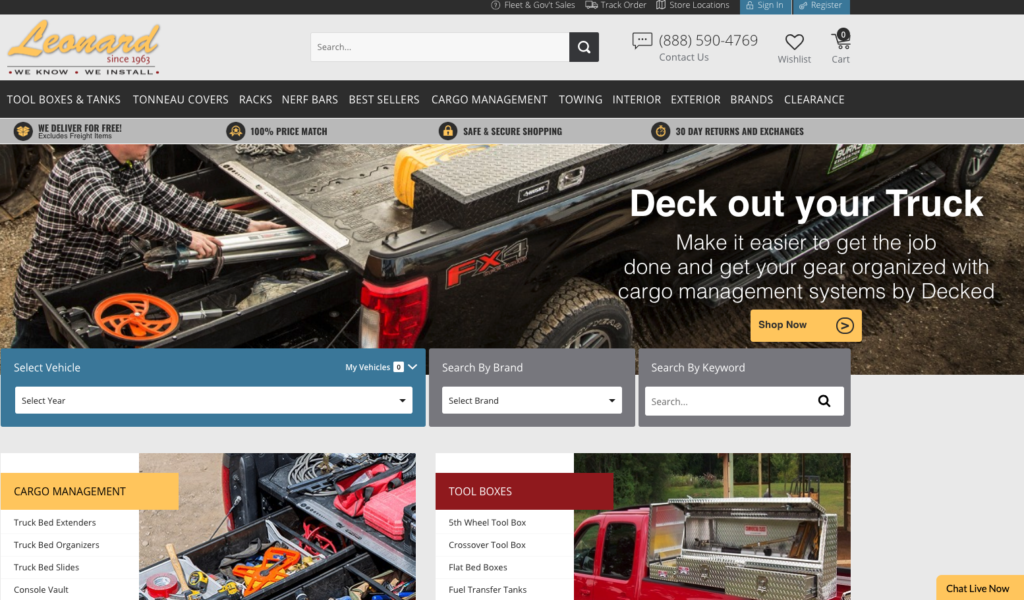
Shopping Cart Elite: A website builder whose primary claim to fame is their low pricing. Other notable features include:
- Make Model Year Lookup
- Sema Data Coop Integration
- Customized Website Search
- Affirm Checkout Support
- Automated Email Marketing & Autoresponders
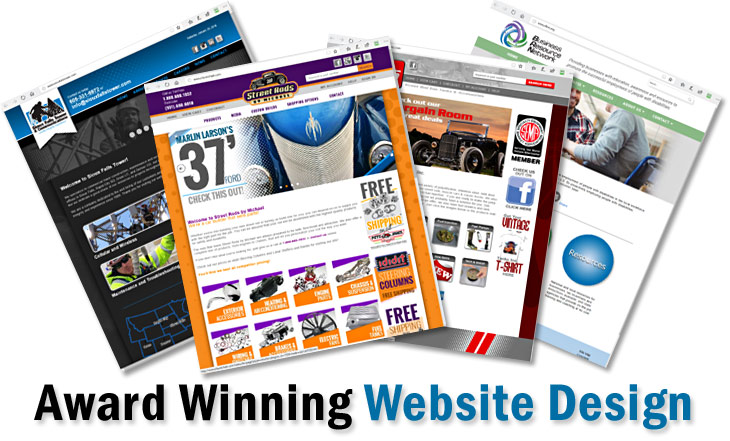
EtechGlobal: They offer web design services but nothing specifically for the automotive market but they market their product based on their low pricing and great service.
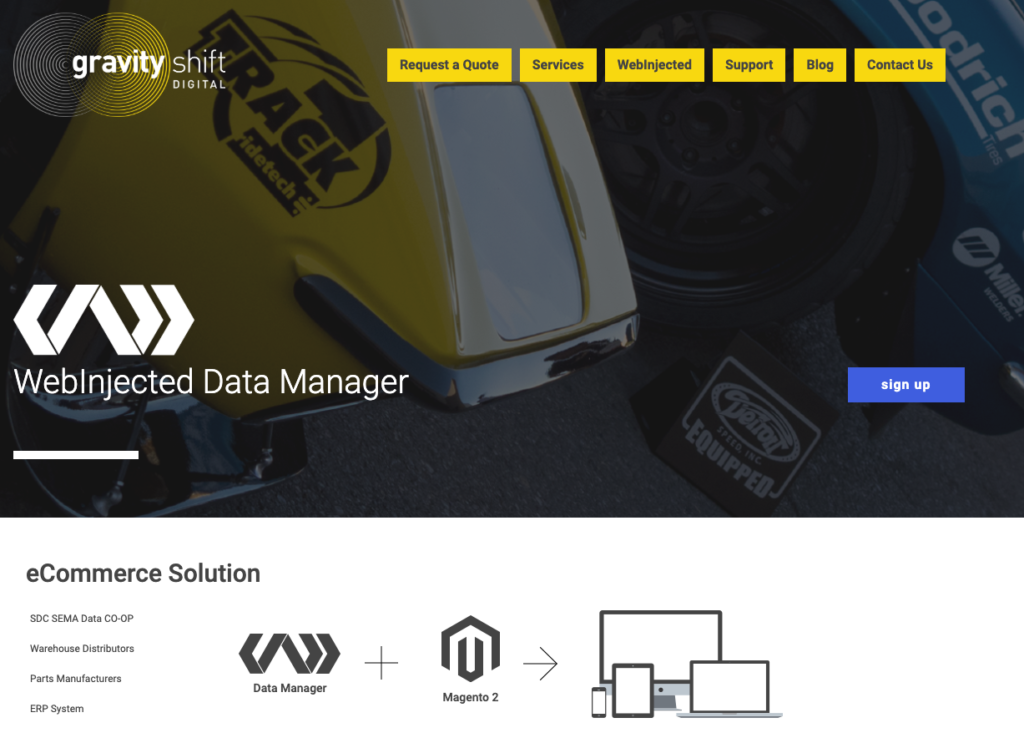
WebInjected: Built on Magento technology, this purpose-built platform unlocks your data and puts powerful tools at your fingertips. The platform also includes:
- Dealer Management
- Fraud Management
- Part & Vehicle Data Management
- Dropship of Part to Customers
- Best Price part purchasing from Warehouse Distributor
- Website Management

DST TurboParts: TurboParts® is a bolt-on solution which is customizable to meet your organization’s needs. In addition, it integrates with current, legacy and future business systems.
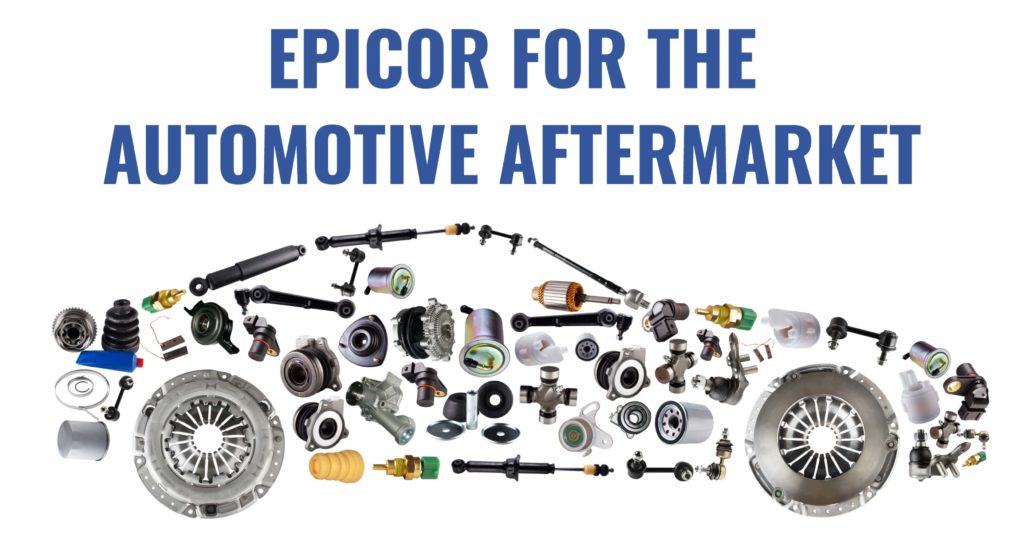
Photo: datixinc.com
Epicor: A platform developed for the automotive parts and accessories market space.
Open Source & Hosted eCommerce Shopping Cart Solutions
The final list we’ve made presents the best of both hosted and open-source solutions for auto parts eCommerce. What’s the difference? In short, hosted platforms generally refer to platforms operating as SAAS (Software as a service). In other words, you’re leasing the software at a monthly cost from the manufacturers of the software. Open source platforms, on the other hand, refer to software systems you own and upload onto your own server or host.
Volusion: Much like Shopify and BigCommerce, Volusion does not have a year-make-model lookup. Nonetheless, it is one of the big players on the scene and is a powerful, hosted platform.
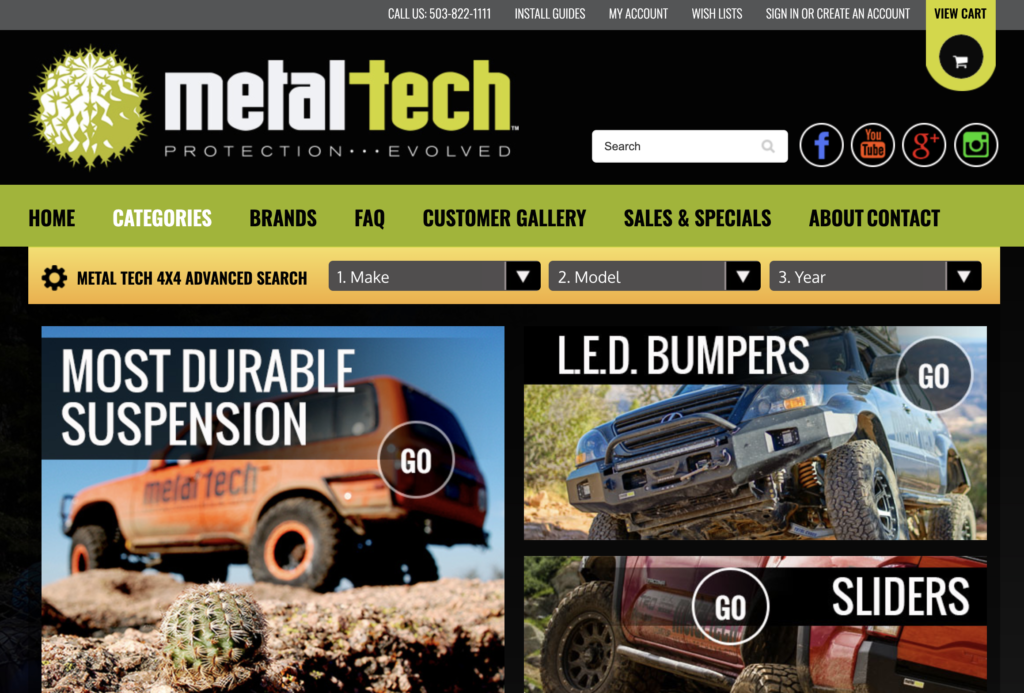
BigCommerce: BigCommerce is a top-of-the-line, hosted option provided you don’t need a year-make-model lookup. Although it can create great auto parts sites, it is also one of the more expensive options.
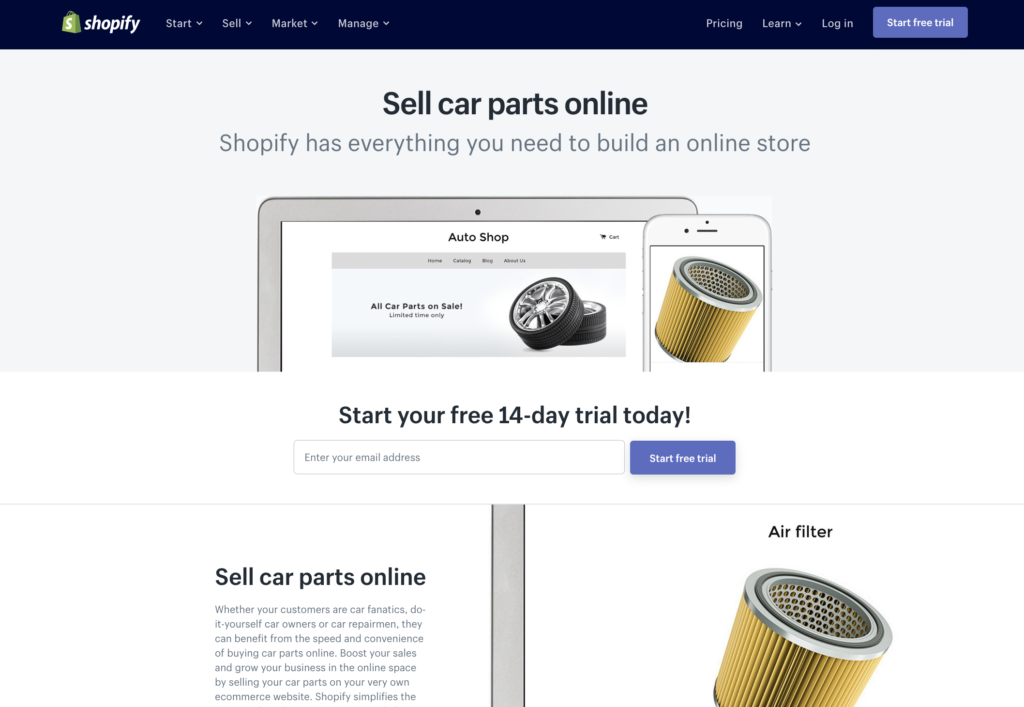
Shopify: One of the most popular hosted solutions for auto parts eCommerce sellers. Shopify has an extensive suite of apps in their marketplace that allows you customize your parts site — adding a lot of functionality. However, at the moment, it lacks a true YMM lookup tool that’s native to their platform. That said, for an extra monthly fee, there are some year-make-model search add-ons available. For example, Automotive Part Search from GoVedia priced at $49/month. To learn more about Shopify’s eCommerce capabilities, check episode 35 of The PitStop Podcast where we chat with Kurt Elster, Host of the Unofficial Shopify Podcast.
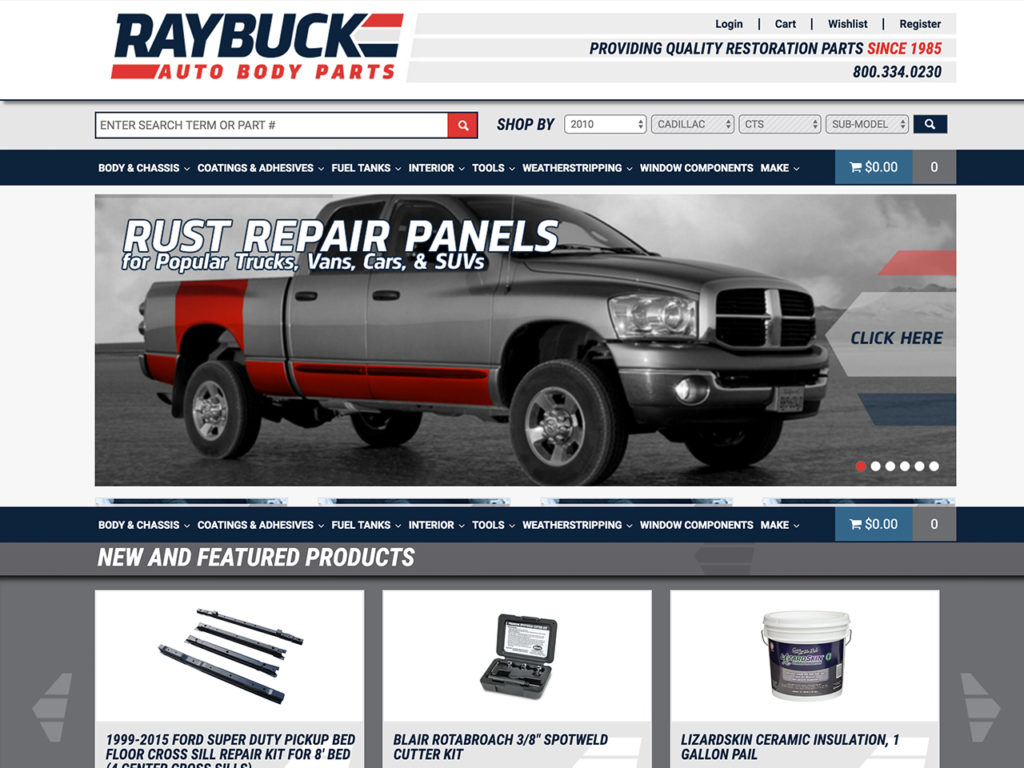
WooCommerce: This open-source cart is great for smaller dealers, shops and sellers but does not scale well.
3dcart: Provides you with a hosted cart with a number of applications which can add a YMM lookup, integrate Quickbooks, etc. It is really a turnkey solution.
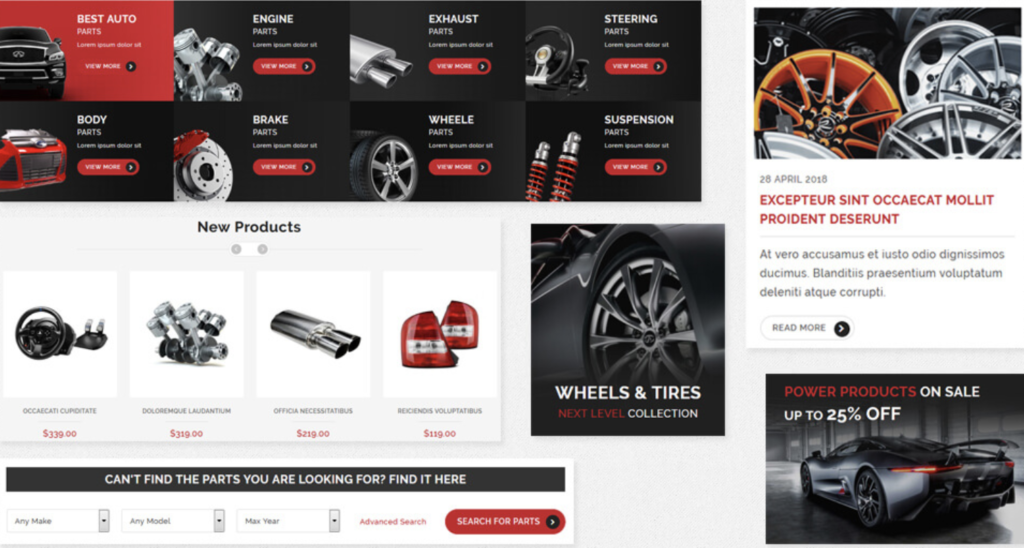
Magento: A fee and open source cart but can get quite expensive as it is customized and scaled.
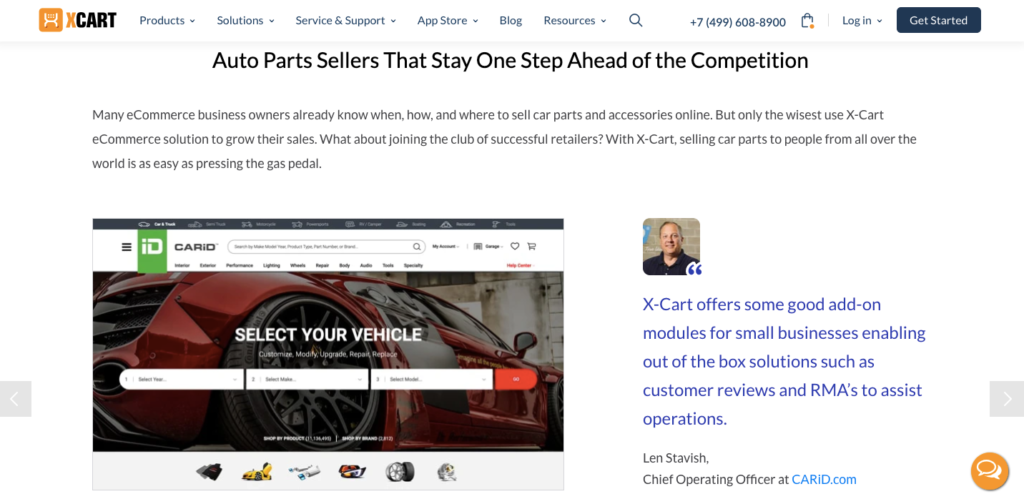
X-Cart: X-Cart offers a hosted solution with full access to the code. On-premise is also an option, which means you can host your X-Cart-based auto parts store virtually at any good hosting. X-Cart has a native Year-Make-Model-Engine-Trim add-on that extends the standard YMM lookup model to fit the needs of today’s shoppers. In addition, you’ll like the fully responsive automotive graphic templates.
Top Marketplaces To Sell Auto Parts
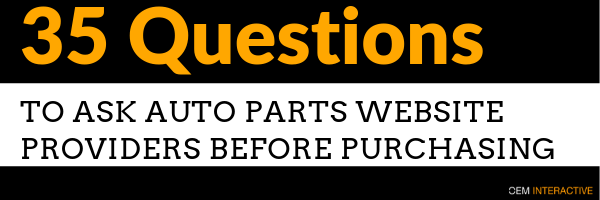
It should come as no surprise that we generally recommend platforms designed specifically for auto parts and accessories over more generic platforms. Nonetheless, the final choice will be yours and must take into account your own preferences, budget and unique product mix.
As you weigh your options and before you commit to an automotive eCommerce website solution, be sure to ask the provider the following questions:
- Do I have to sign a long-term contract? Many platforms want you to sign long term contracts. Although you’re unlikely to switch once you’ve invested time and money into a particular shopping cart, you want to be sure you have the option to jump ship if a better option becomes available.
- Am I able to add my own data? For example, if you sell a mix of both genuine OEM and aftermarket parts, you would need the ability to add in custom data.
- Does the platform support a blog? Speaking of SEO, content marketing is an essential marketing tool, and much of your potential success will rely on an easy way to post content to your site. This content delivery system is usually called “blog,” but it can also be an articles or resources section.
- What is the average increase in sales I can expect by switching to your platform? Any company worth their salt will have these figures so be sure to ask for them.
- Is the content on my site customizable? If you ‘re unable to change the meta tags and descriptions on your product pages of your website you will certainly have problems with SEO.
- Does your shopping cart have one-page checkout? Multi-page checkouts can reduce conversions and sales.
- Can I see some live examples of promised features? If you’ve been promised features or functions, ask to see a live example of them in action. Features or functions that aren’t live can often be weeks or months away from release or may never make it to production at all.
- Are there any set-up fees? Many companies charge nominal setup fees, especially those that offer bundled solutions with SEO and AdWords components.
- What’s the average uptime for the last 90 days? Some auto parts eCommerce platforms are besieged by technical problems, to the degree that they can cause your website to go offline on a daily or weekly basis. Obviously, if your site is down you can’t sell and Google may even deindex it. Ask for documentation too so it’s not just word of mouth.
- Can you give me five sites currently using your platform? This will allow you to contact the businesses for their honest thoughts and to test the functionality of the cart.
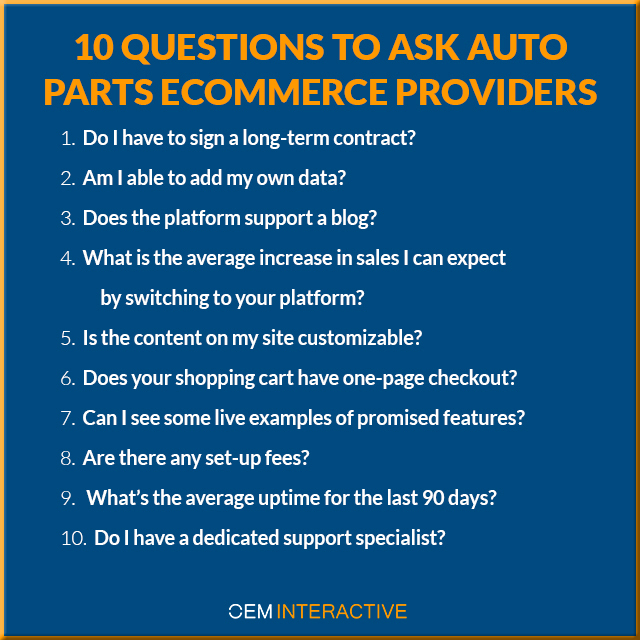
One last point to consider is this: once you’ve chosen the platform or provider, it’s unlikely that you’ll jump any time soon. For this reason, take your time before signing on with a company. Do your research and be sure to use our 10-point list of questions when evaluating different website builders.
Make sure that you check out our article on How to Choose the Best Auto Parts eCommerce Platform. We know that this was an extensive list, which is why we followed up with a guide on how to choose the best platform to sell your auto parts from among the many options listed above.
Are You An Auto Parts eCommerce Website Provider?
If you are an auto parts eCommerce provider and are not on our list, please contact us detailing why you’d like for us to consider adding you. We welcome all inquiries and review every email.
Increase Profitability Selling Car Parts Online
For more information on how you can sell more car parts and accessories online, check out our podcast series, The PitStop. The PitStop Podcast is dedicated to automotive executives looking for actionable digital marketing strategies to help grow their Fixed Operations Departments—while also providing resources to consumers on how to efficiently and effectively navigate today’s automotive industry. On each episode, we provide expertise and detailed analysis of these topics—interviewing pacesetters in digital marketing and the automotive and powersports industries.
Below is an example of what you can expect from tuning into the show. In this episode, we sit down with Kurt Elster, host of The Unofficial Shopify Podcast and CEO/Co-founder of Ethercycle discuss how to optimize your automotive eCommerce store to generate more sales.
